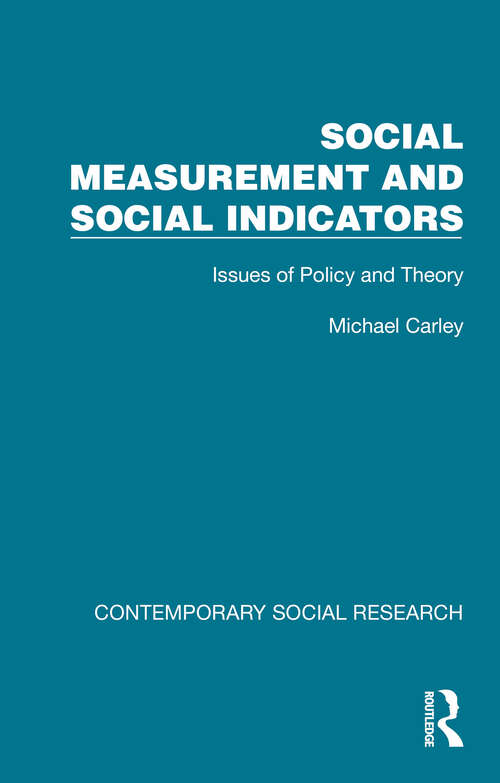
Social Measurement and Social Indicators: Issues of Policy and Theory (Contemporary Social Research)
General non-fiction
Synthetic audio, Automated braille
Summary
For the early pioneers of the social indicator movement, the possibilities of doing social good by developing the tools of social measurement seemed endless. However, in the early 1980s these high, and perhaps naïve, hopes remained unfulfilled, especially for the… data needs of the policy-maker. If not pessimistic, administrators and public policy-makers were at least guarded about the usefulness of social indicators as an aid to increasingly complex decision-making.These difficulties reflected both policy-related and methodological issues. Originally published in 1981, Social Measurement and Social Indicators is not a ‘how-to’ guide on the construction of social indicators, but rather a critical and optimistic view of these central issues, as embodied in the literature and in practice at the time. Michael Carley contrasts some of the basic problems of social measurement with government’s needs for reliable information, organised by their policy usefulness and statistical sophistication.The book then discusses the critical relationship between social indicators and social theories and models, as well as the role of social information in the policy process. Later chapters look at the audience, the problems, and the prospects for national social reports; and explore in detail three different applications of social indicators to urban analysis. Throughout the book helpful examples are drawn from North American, UK and European experience.Social Measurement and Social Indicators is aimed at a cross-disciplinary audience in government and the universities. For students, it will serve as a compact introduction to the broad field of social indicators; for administrators, it explores philosophical and measurement problems and suggests criteria for interpretation; for researchers, it places social indicator efforts into a wider policy analysis perspective – with its inescapable political value judgemental, and bureaucratic aspects.